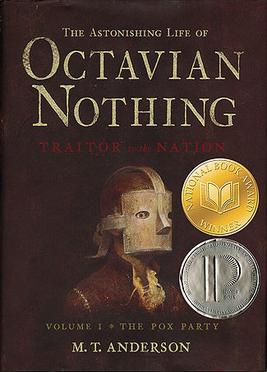
Two years ago, I had a letter from Earnest. He was writing to tell me that he was leaving the priesthood, though he had decided to stay with his little school in the high mountains....'I have no place left to live but in my own heart,' he wrote, meaning he would conduct his life as before, but on privately different terms.
And I thought this was the stupidest stuff I had ever heard until, sitting on a stool in the Shelbourne bar, I wondered what might happen if I just carried on as usual, told no one, changed nothing, and decided not to be married after all.
And I wondered how many people around me are living with and sleeping with and laughing with their spouses on just this basis, and I wondered how sad they were. Not very, by the looks of it. Not sad at all.
The Gathering, by Anne Enright, is the story of Veronica, and her coming to terms with the suicide of her favorite brother, Liam. It is her unenviable task to travel from Ireland to England to recover his body, and bring it home for the funeral.
Veronica is falling apart following her brother's death. In addition to her grief, she harbors a secret, or at least, she thinks she does. She is hazy on her memory of an incident during their childhood, and fears that perhaps it may have been the first step toward Liam's eventual death. Her struggle with this memory, with trying to remember what did and what did not happen, and to whom, unravels her happiness and further strains her marriage. You get the feeling that she has never been a joyous person, she is too cold and critical for that, but she did have love and happiness, which are currently overwhelmed by her sadness and her memories. She is a woman in the process of falling apart.
Veronica tells the story of her family, going back to the day her grandparents first met, coming forward to her mother's passive life, and then to that of her many brothers and sisters. She harbors both love and disdain for her mother, whose 17 pregnancies, resulting in 12 children and 5 painful miscarriages, Veronica sees as proof of her mother being unwilling to refuse her father's carnal desires. That her mother might have shared these desires never seems to cross her mind.
Already a cold person, Veronica shuts down emotionally in the period following her brother's death. She resents her husband for wanting sex so soon after the death, resents him trying to prove to her that she is still alive. After that first encounter, she refuses to come to bed any more, instead staying awake all night, every night, drinking wine and waiting for him to get up for work before she herself collapses into bed.
The title of the book,
The Gathering, made me think this was going to be the story of a family coming together, and of the joys and recriminations that might come to light at such a gathering. But at least 3/4 of the book is told in her meandering way, as she travels through memories and stories, while on the way to and from England on her sad task. Only at the end do we meet her siblings, and find ourselves at a surprisingly muted event.
If I were to read this review up until this point, I would think that
The Gathering isn't really worth reading, and that Veronica is a character that I would not like. But Enright's writing is so beautiful, and she is able to bring you into Veronica's mind so well that you feel sympathy for her, for what she's been through, for her upbringing. You hope for her to find peace with her family again, and joy within her marriage. The end is too ambiguous for that, and I walked away feeling someone dissatisfied.
I have seen
The Gathering compared to
The Dubliners, by James Joyce. One big difference is that
The Gathering is a novel, while
The Dubliners is a book of short stories. I've only read the most famous story in that book,
The Dead, which is a story that touched me very deeply.
The Gathering is similar in its prose and imagery, and in that the book seems to meander along until finally you get to the end, and it turns out that the end is what you were waiting for all along. In
The Dead, however, that end is a beautiful respite, and a glimpse into love that is not jealous or unkind, despite the jealousy and unkind thoughts that were there moments before...a love that transcends this mortal world, however mortal the players.
The Gathering offers no such great reward.
I would recommend this book to people who love beautiful, evocative writing. Enright is a gifted writer in this aspect. I would not recommend this book for anyone seeking an easy, quick read, as the twists and turns and dark subject matter make this a somewhat difficult read.


 )
)









